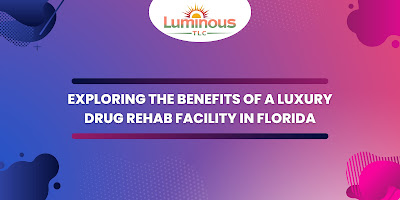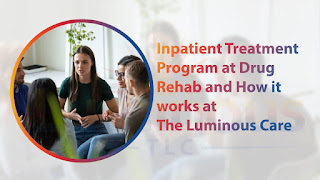About Addiction and its Transference
What is Addiction?
Addiction is an inability to stop using a substance or partaking in a direct manner regardless of the way that it is causing mental and genuine harm. The term propensity doesn’t simply imply dependence on substances like heroin or cocaine.
In other words, Addiction is described as a consistent, falling away from the faith issue depicted by energetic medicine pursuing, continuing to utilize paying little heed to risky outcomes, and reliable changes in the psyche. It is considered both an astounding frontal cortex issue, mental insecurity, or genuine affliction.
Today, more than 7 million people experience the evil impacts of drug disorder prescription issue, and one of each four deaths results from illicit drug use. Honestly, more passings, afflictions and disabilities are associated with constant drug abuse than another preventable sickness. People suffering from drug and alcohol addiction also have a higher risk of unintentional injuries, accidents and domestic violence incidents.
Longer-term effects can cause heart or lung disorder, sickness, mental maladjustment, HIV/AIDS, hepatitis, and others. Long stretch medication use can moreover provoke obsession. Persistent medication use is a frontal cortex issue. Few out of every odd individual who utilizes prescriptions will become reliant, but instead for a couple, drug use can change how certain brain circuits work.
What Is Addiction Transference?
Addiction transference is also recognized as a cross-addiction, is when an individaul has a dependancy on two or more addictive substances or behaviors, which can include addictions to not only alcohol and drugs but additionally video games, food, sex, gambling, or other compulsive behaviors. Addiction is the endured use of a substance or behavior despite the potential for private troubles or poor consequences. A man or woman with dependence may also want to stop, but war is doing so on their own.
Cross addictions do not always have to happen simultaneously. For instance, anybody may additionally be in recovery from drug addiction, such as opioids, and might also even be smooth for many years, however later develop a dependence on alcohol or have interaction in behaviors that may additionally grow to be compulsive. This triggers the brain’s dopamine reward center. Individuals who have a history of one dependency have a greater propensity for growing a cross-addiction. Addiction transference takes place when a man or woman substitutes one dependency for another.
How Does Addiction Transference occur?
There are quite several motives for why addiction transference develops; however, it is frequently accidental. For example, a man or woman with a dependency or history of addiction may have surgery and be prescribed Percocet or Vicodin, and the euphoric feeling they get from the drug reinforces the endured use of the drug till it leads to a rise in use and subsequently will become an addiction. Another frequent reason for addiction transference or cross addiction is a lack of understanding that some other dependency exists. A man or woman can also be aware they have a dependency on another substance however might also not recognize they have a dependency on compulsive behavior or another substance, making it pertinent that men and women with a substance use disorder, or history of one, be aware of the danger of cross-addiction.
Another reason addiction transference can also show up, Is if anyone has unresolved mental health issues, otherwise recognized as co-occurring disorders or dual diagnosis. An individual with trauma, nervousness, or depression may additionally begin to use alcohol with different pills as a way to compensate themselves. Cross addiction additionally happens as an attempt to compensate for uncomfortable changes in daily routines and behavior, as properly as due to thoughts and ideas that the individual can also struggle coping with. A frequent instance is when an individual recovering from an alcohol dependency begins gambling heavily. This can lead to emotions of hopelessness and financial stress. However, due to the compulsive nature of gambling and the reward of dopamine in the brain, the behavior continues as a way to cope.
How Ordinary Is Addiction Transference?
According to the National Survey on Drug Use and Health, there are about 21 million individuals aged 12 or older who reported having a cross-addiction. Many individuals do not ask for help for their dependence due to no longer believing they can stop or no longer being ready to stop, while some no longer trust they have a problem at all.
How Is Addiction Transference medicated?
Addiction transference is best treated at the luminous care with the assistance of 12-step programs or other recovery support groups. There are many extraordinary kinds of support groups that focus on precise addictions, inclusive of particular capsules as well as compulsive behaviors, such as gambling, food, or sex. A top treatment program will further address any co-occurring physical fitness troubles through enforcing evidence-based treatment modalities. There is additionally the profit of medication-assisted treatment (MAT) for certain individuals.
If anybody has a history of addiction, it is great to communicate with an expert before the use of any prescribed medicinal drugs that are viewed as addictive substances, such as opioids or benzodiazepines, due to the excessive threat of developing a cross-addiction. If one must take dependence medications, having a family member dispense them might also assist minimize the chance of abusing them.
The great way to keep away from cross-addiction development is by instructing yourself and others. When a man or woman is in early recovery from one addiction, they are extra susceptible to growing a cross-addiction due to the fact their brains are still searching out the dopamine rush that they obtained when they have been actively using. Despite this, it can still happen after many years of being in recovery. The fantastic form of action is to be aware of the dangers and take proper inventory of your behaviors to stop growing a cross-addiction.
Possibly you or anyone you know is struggling with addiction transference. If you are not sure or feel you want help, do not hesitate to reach out for help. No matter what the condition, addiction assistance is available.
Call us now – 833-422-5585 or For more information enquire us at info@theluminouscare.com



Comments
Post a Comment